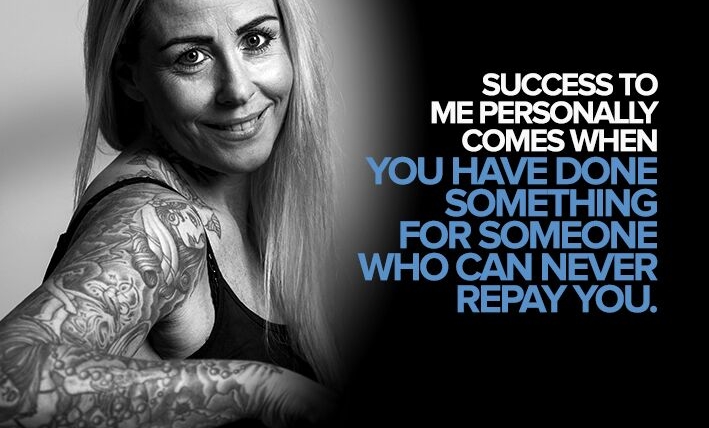
The tech industry is a global behemoth that pulls in billions and billions of dollars each year. But
in the largest country for tech in the world, the United States, women still make up less than a
third of tech employees. In India, only about 8% of tech firms are owned by women. However, despite the discrimination that female tech entrepreneurs face in the field, many of the most groundbreaking social sector technology initiatives have been led by women.
Here are five women who changed the tech scene in India and beyond.
1.Leila Janah
Leila Janah, a Harvard graduate of the class of 2005, travelled through the Dharavi slums after having started a career as a management consultant. The disconnect between the amount of job outsourcing that the U.S. has sent to India and the extreme poverty of the country’s least well off got her thinking, and she founded Samasource.
At the age of 32, she started the nonprofit to connect Asia’s and Africa’s poorest people with basic tech work that doesn’t require much formal training. Getty Images, Google, LinkedIn, and others all need menial tasks like photo tagging and content moderation done by real people, and pay wages that for trained tech workers might seem unattractive, but for the slums of India and Uganda can be a lifesaving income.
Rather than changing the tech scene’s infrastructure or devising a new technology, Leila Janah combined an existing supply and demand in a way that helps those most in need.
2.Aashna Shroff
Aashna Shroff, a native of Hyderabad in Telangana, likes to code. Scratch that, she LOVES to code, and ever since taking computer science classes in high school wanted to pass that love on the other people who might otherwise not have found it.
Ever since starting her university education at Stanford, Shroff was surprised and disappointed at the miniscule number of women in her classes, so she set to work trying to fix the problem. Despite all the factors dissuading women from going into tech, she decided that the best way to get more women into coding was to start them early.
Aashna and two friends founded Girls Code Camp, a nonprofit dedicated to offering computer science workshops to high schoolers, and in their first session they taught more than 400 girls in Hyderabad. Although that may not seem like much in the grand scheme of things, the first installment functioned as a test of the curriculum and how attractive it could be to schoolgirls who had never participated in computer science before.
In 2016, Girls Code Camp held even more workshops, and has since partnered with several other organizations to spread the curriculum to other cities, and even other countries.
Aashna Shroff, while starting small, demonstrates the power of a few motivated individuals to effect change and work towards a more equitable tech field.
3. Anita Borg
Anita Borg has had a far-reaching impact in the tech world in her advocacy for women.
Having taught herself to code after initially not going to school for programming, Borg founded Systers in 1987, an email network for women in technology where she and her colleague could communicate and discuss the issues facing women in the tech field.
Systers didn’t just tackle technical issues; they were a leading voice in the fight to get Mattel to stop having its Barbie doll say “math class is tough,” a phrase they felt perpetuated negative female stereotypes.
Borg was also a co-founder of the Grace Hopper Celebration of Women in Computing, and the Institute for Women and Technology, which was later renamed after her (AnitaB.org). The Anita Borg Institute has a sister organization, Anita Borg India, and a Grace Hopper Celebration India exists as well. Both of these foster entrepreneurship and support for women in the Indian tech sector, as well as hosting code-a-thons for students and diversity and inclusion workshops for companies.
4. Reshma Saujani
Reshma Saujani represents many of the same accomplishments as Aashna Shraff, but on a massive scale. Saujani is the founder and CEO of Girls Who Code, an incredibly successful nonprofit that has created the biggest pipeline of female engineers in the world.
By recognizing the alarming trend of the increasing gender gap in the tech sector, and identifying the biggest drop off happens between the ages of 13 and 17, Reshma Saujani targeted her nonprofit (non-exclusively) towards girls in that age range. Despite the existence of free coding resources for kids online, many young women don’t gravitate towards those because of a lack of support or role models. Girls Who Code offers workshops, curriculums, individual advice, and financial support specifically to young women looking to get into engineering and programming.
To date, Girls Who Code has directly impacted 185,000 people and indirectly influenced 100,000,000 through the downstream effects of their work. The nonprofit has expanded from the U.S. to Canada, the United Kingdom, and India. By reaching out to Girls Who Code, any school club, community organization, or even a random assortment of individuals can receive free courses and materials to empower the next generation of female engineers.
5. Anjali Sud
Anjali Sud has broken barriers in the tech scene by redefining how to succeed in the industry.
She never followed a typical education or career path, facing rejection often early on. However, her hardworking nature and excellent finance and operations skillset led her to become the CEO of Vimeo at 34.
Vimeo, a billion-dollar video hosting and sharing company, was looking for a new approach to its vision, and Anjali Sud had one. Working in Vimeo’s global marketing department, she emphasized that Vimeo should focus on content creators rather than just being a hosting and streaming site, foreshadowing the trend that Netflix and now YouTube have tried to exploit as well. Her innovative thinking and disregarding of boundaries makes Anjali Sud a role model for many women in tech.
According to Sud: “You don’t have to follow a traditional career path. There’s no rule book or playbook for success. Write your own roles. Don’t take people’s paths as the way that you have to do things. You have to do it yourself.”
In Summary
All of these women have written their own roles and carved paths for themselves that the tech world intrinsically tried to dissuade them from.





